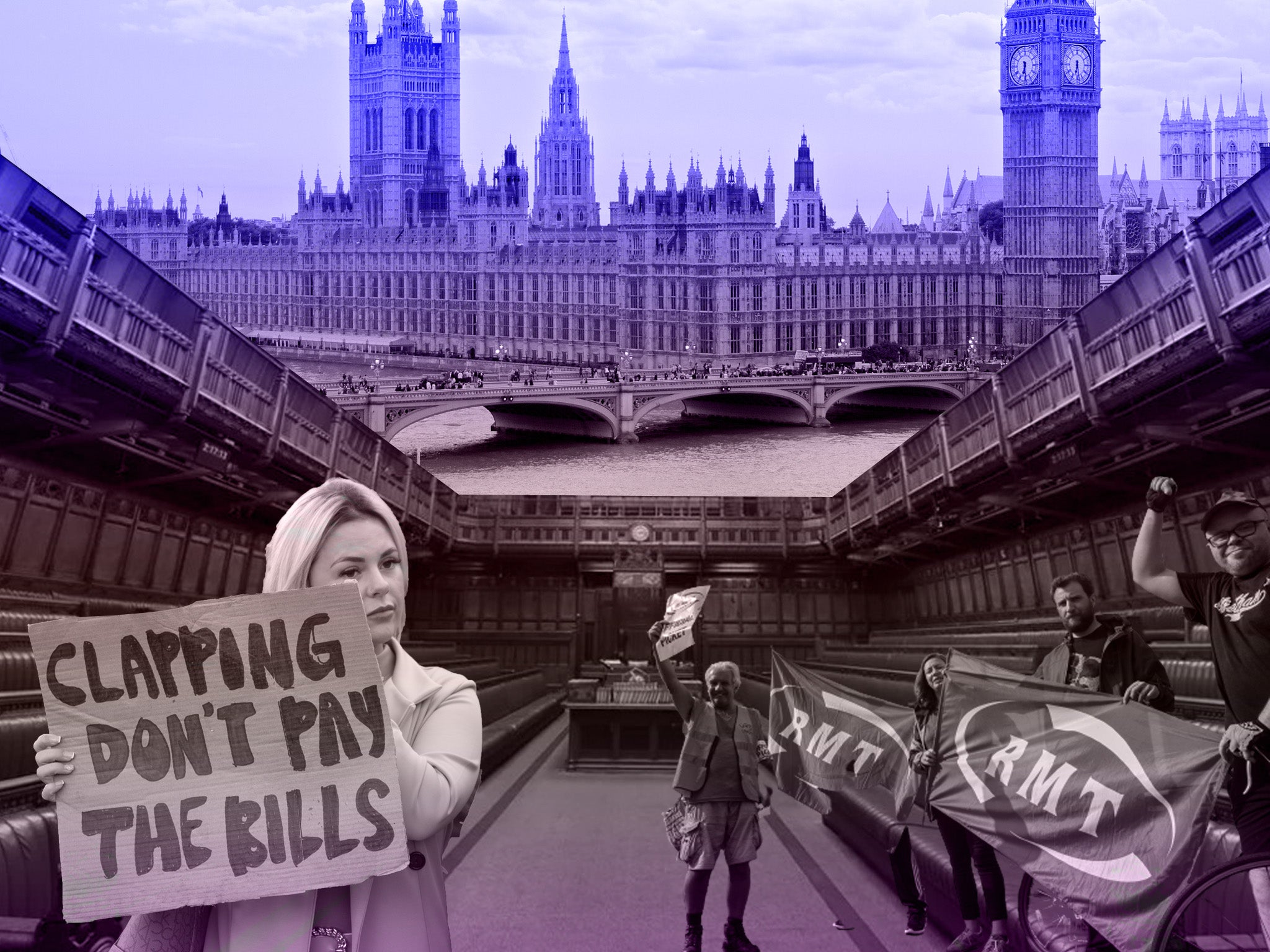Strikes are a symptom of the problem – not the cause
As part of our series looking at strikes, Unison leader Christina McAnea warns that more lives will be put at risk


If someone you loved suddenly stopped breathing, how much would you give a stranger in return for their help? You’d probably offer anything to keep them alive.
Ambulance workers save lives every day, and often risk their own safety and wellbeing to do this. But right now, NHS wage rates dictate that each minute of the 999 call-handler’s time – your first point of contact in an emergency, dealing with life and death situations – is worth less than 20p.
Many NHS staff have already walked away from the profession, for better paid and less stressful jobs elsewhere. Record vacancies across the NHS and social care are causing unprecedented pressures and failures, and these problems are inextricably linked to pay.
The government has overseen the decline of the NHS over the past 12 years, with health workers no longer able to give the level of patient care the public deserves.
Yet the message they’re getting from ministers is “Like it or lump it.” These are dedicated, experienced and compassionate people who’ve had enough of being taken for granted.
About six weeks ago, I visited an ambulance operations centre. The sense of tension was overwhelming in the room where emergency calls are received and dealt with. Skilled call handlers calmed, reassured and advised panicking people desperate for help. They swiftly identified what was needed and who should be prioritised.
Their responses make all the difference. But a backlog of calls meant the service was close to declaring a critical incident; ambulance wait times for the most serious emergencies were being measured in hours, not minutes.
Ambulance crews are the face of the NHS A&E service, the first to arrive when people are critically unwell or in a life-threatening situation. Yet they’re so stretched by chronic understaffing that they’re unable to respond to emergencies on time. The situation is made worse by ambulances having to queue outside hospitals for hours on end as they wait to hand over patients.
Paramedics tell me continually that the situation has never been this bad. It reached the point a while ago where staff could no longer offer a safe level of care. With pay failing to keep up with inflation, and the job pressures so great – due to increasing demand and vacancies – things have become unworkable.
Unison has been urging the government repeatedly for months to negotiate with us on pay – a call that has so far been ignored.
Dignified industrial relations and negotiations to resolve disputes are essential in a civilised society. So is the legal right for workers to withdraw their labour. But no one sees this as anything but a last resort.
No health worker wants to be on a picket line – they lose pay, and they know the public will have to wait even longer. That said, the government’s intransigence left paramedics, emergency care assistants, ambulance technicians, other 999 crew members and the wider NHS staff in some hospitals with no option but to vote for industrial action in Unison’s ballot over their inadequate pay rise.
The NHS strike before Christmas was the first in England since 2015. Unison made every attempt to minimise the impact on the public, working with employers to do so. The union also gave the government every opportunity to open pay negotiations.
It was surprising that the health secretary accused paramedics of causing deliberate harm to patients. In fact, ambulance crews spent many hours negotiating and agreeing detailed contingency measures with local employers to protect the public ahead of the walkout. They left picket lines to respond to calls when patients were in danger.
But for every minute this government refuses to negotiate with NHS staff and unions, more lives are put at risk.
Critical incidents were declared even before Unison’s strike started. These deep problems won’t be resolved by the government turning its back on the workers, or attacking them over their commitment to patient safety.
It’s clear to me how the NHS can be saved. The government must be honest that it is not providing a reliable and safe NHS. It must acknowledge that strikes are a symptom of the problems, rather than the cause. And ministers must listen to the experts – NHS workers – on what they need to do their jobs, and open genuine negotiations with all of the health unions on improving pay and conditions.
When Steve Barclay starts listening to NHS staff, he’ll realise that there can be no progress without resolving pay. He shouldn’t wait a minute longer to begin talks that will fix the crisis.
Christina McAnea is the general secretary of Unison
Join our commenting forum
Join thought-provoking conversations, follow other Independent readers and see their replies
Comments
Bookmark popover
Removed from bookmarks